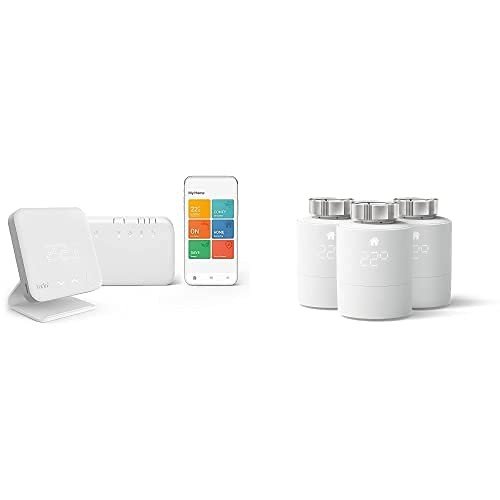15 Pinterest Boards That Are The Best Of All Time About Shop Lighting UK
Shop Lighting UK: Illuminating the Retail Experience
In the ever-evolving world of retail, the importance of shop lighting can not be overstated. It not just improves the aesthetic appeal of products but also affects client habits, their state of mind, and the total shopping environment. With improvements in innovation and design, shop owners in the UK have a myriad of alternatives to pick from when it emerges services. This article will check out the types of lighting available, their benefits, and considerations for creating the perfect atmosphere in a retail area.
Importance of Proper Shop Lighting
Reliable shop lighting plays an essential role in client experience and can significantly impact sales. Here are some key reasons adequate lighting is essential for retail environments:
- Highlighting Products: Good lighting accentuates items, making them more appealing to customers.
- Developing Atmosphere: The ideal lighting can set the mood and evoke emotions, influencing getting choices.
- Enhancing Safety: Well-lit shops are more secure, helping consumers navigate without danger of tripping or mishaps.
- Improving Visual Merchandising: Proper lighting can enhance displays, making them vibrant and distinctive.
Types of Shop Lighting
Shop owners can choose from various types of lighting, each serving various functions, consisting of ambient, task, accent, and decorative lighting. Here's a breakdown of each type:
Type of Lighting
Description
Finest Uses
Ambient Lighting
Offers total lighting to the area.
General retail locations like stores and grocery stores.
Job Lighting
Focuses on specific areas to boost visibility for tasks.
Checkout counters and dressing rooms.
Accent Lighting
Emphasizes specific items or display screens, producing a centerpiece.
Display cases, art, or marketing products.
Decorative Lighting
Includes visual appeal and boosts the overall decor.
Chandeliers and distinct fixtures in high-end stores.
1. Ambient Lighting
Ambient lighting is the fundamental lighting within a shop. It fills the entire space, making sure that consumers can see and browse easily. Merchants must think about utilizing LED panels or ceiling-mounted fixtures, as they offer energy performance and excellent light circulation.
2. Task Lighting
Task lighting is essential for areas where particular activities take place, such as checkout counters or workstations. Shop owners can set up under-cabinet lighting or track lights to focus lighting on these locations, enhancing the benefit and experience for both personnel and customers.
3. Accent Lighting
Accent lighting assists draw attention to specific items or features within the store. This type of lighting can be attained through spotlights, track lights, or strategically positioned wall-mounted fixtures. It is particularly efficient for showcasing included items, advertising displays, or art work, guiding customer focus where it's most needed.
4. Decorative Lighting
Beyond performance, decorative lighting components include style and character to a retail space. Unique fixtures, such as pendant lights or extra-large chandeliers, can develop a remarkable atmosphere, especially in shops or high-end merchants. These declaration pieces not only illuminate however also boost the shop's branding and aesthetic appeal.
Selecting the Right Lighting for Your Shop
When selecting lighting for a retail environment, shop owners must think about the list below aspects:
- Store Type: Different types of retail require differing lighting options. A precious jewelry store may need softer, more focused lights, while a grocery store may need brighter ambient lighting.
- Color Temperature: The color of light can impact the understanding of products. lightingandlamps.uk (under 3000K) develop a cozy feel, while cool lights (above 3000K) can make an area feel more contemporary.
- Energy Efficiency: The usage of LED lighting not just saves energy but also decreases costs gradually.
- Flexibility: Install dimmers or adjustable fixtures to adjust lighting for different celebrations or seasonal changes.
The Future of Shop Lighting
As innovation progresses, shop lighting is becoming progressively sophisticated. Here are some patterns shaping the future of retail lighting in the UK:
- Smart Lighting Solutions: Integrated innovation allows for remote control and automation of lighting systems through smart devices or home assistants.
- Sustainable Lighting: There is a growing focus on environment-friendly options, with sellers choosing for items that reduce environmental effect.
- Centerpiece Lighting: Retailers are significantly utilizing lighting to produce particular focal points that guide customer traffic and boost product display screens.
Frequently Asked Questions about Shop Lighting in the UK
Q: What is the best kind of lighting for a clothing store?A: A mix of
ambient and accent lighting is normally best. Ambient lighting is essential for overall exposure, while accent lighting can assist highlight crucial pieces or collections. Q: How can I make my shop lighting more energy-efficient? A: Consider utilizing LED lights, installing motion sensors, or incorporating
dimmers. This reduces energy consumption and expenses in the long run. Q: Should I use natural light in my shop?A: Yes, making use of natural light can boost client experience whilelowering energy expenses. Nevertheless, it is necessary to balance natural light with synthetic lighting, specifically on cloudy days. Q: How frequently ought to I replace my shop's lighting fixtures?A: This depends upon the type of fixtures used. LED lights can last up to 25,000 hours, while traditional bulbs****
might require to be changed more often. Regular upkeep checks are advised. In a significantly competitive retail environment, shop lighting plays an invaluable role in forming customer experiences and driving sales. Sellers in the UK have a broad range of alternatives and innovations at their disposal to create the best atmosphere. By understanding the importance of the different types of lighting and how to execute them successfully, shop owners can improve their space, making shopping more pleasant for clients while increasing their bottom line. 